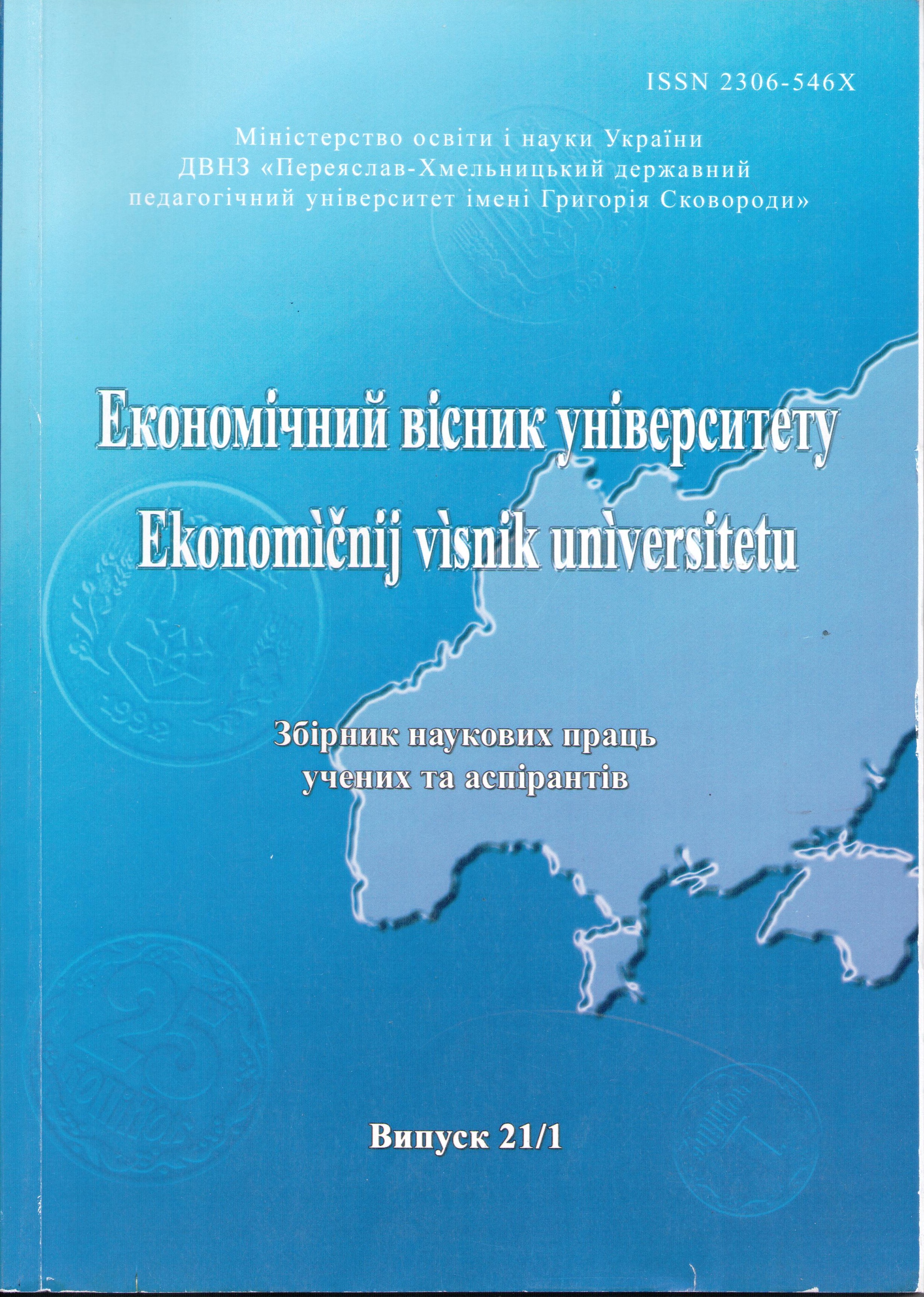Інституціоналізм та його місце в сучасній економічній теорії (політичній економії)
Institutionalism and its position in the modern economic theory (political economy)
Author(s): Petro LeonenkoSubject(s): National Economy, Political economy, Economic development, Socio-Economic Research
Published by: Університет Григорія Сковороди в Переяславі
Keywords: classifying; structuring and diversifying of economic theories; current institutionalism; traditional (classic) institutionalism; new institutionalism; new institutional economic theory;
Summary/Abstract: The article describes the issues of classifying, structuring and diversifying modern economic theories and analyzes the views of local and foreign scientists on the essence, structure and future of modern institutionalism in economics. Aim of the article: to describe the essence and forms of realization of notions “classifying”, “structuring” and “diversifying” of the modern economic theories and different approaches of local and foreign scientists to their realization; to apply these notions in the analysis of the internal structure of modern institutionalism, its representatives and discussions concerning the present condition and perspectives of development; to show definite peculiarities in the “national lines” of current institutionalism (British, American, French). General conclusions: 1. Modern economic theory is characterized by embranchment, diversity, alternativeness and opposition of concepts, schools, directions. Its constituents are greatly dependent on the economic, social, political and cultural factors and circumstances characterizing separate epoch. They also change with the flow of time being dependent on the changes of historical conditions. Complexity of real world preconditions the probability of its perception and change of different theories with the flow of time. 2. Attempts of general classification of economic theories are based on definite social philosophies (variants of liberalism, socialism and humanism), constituting integrating basis of economic sciences. Assessment of changing institutional system and behavior depends on the social philosophy of the scientist. 3. Attempts of general classification of economic theories are based on different criteria. As a result there are different variants of general classifications, as well as placement in the specter of schools, directions of economic science of modern institutionalism and its definite internal structure. 4. Excessive diversity, alternativeness and embranchment of the economic theories cause may problems at the attempts of their classification, further research and practical application, in particular during the development of economic and financial policy. The main problems include: complexity of providing unbiased and balanced view of all the existent theories and directions of modern economic thought, their historical development; domination of neo–classical economic theory of balance in the educational process and in financial and economic practice; impossibility to clarify connections between the theoretical models and reality; danger of isolation of pure economic theory in the unreachable and unidentified location and impossibility of explaining real processes and phenomena; concentration in practice on the neo–classical theories of mainstream, in particular market fundamentalism leads to considerable gaps in the economic policy and provokes deep financial and economic crises. 5. In different variants of general classification of economic theories the place and internal structure of institutional (or institutional– evolutional) direction are determined differently. The issues concerning its internal structure still remain controversial. Though, for the time being, the tendency to the separation of “old” (traditional) and “new” institutionalism as the constituents of single institutionalism, as well as inclusion of neo–institutionalism with the numerous theories forming its paradigm, prevails.
Journal: Економічний вісник університету
- Issue Year: 1/2013
- Issue No: 21
- Page Range: 163-171
- Page Count: 9
- Language: Ukrainian

